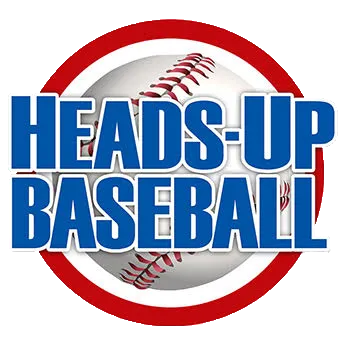I started laughing at myself before I even got out of bed this morning.
I haven't written in a while and I wanted to keep in touch and perhaps contribute to your world in some way, and my first (and laugh-inducing) thought was: no one needs Heads-Up Baseball.
You'd think a guy who's spent much of his adult life creating and teaching two books would think of them differently. After all, I often say, "Coaches and players say the mental game is 80% of success but they spend very little time training it."
Plus, we've sold close to 200,000 copies of Heads-Up Baseball, and Heads-Up Baseball 2.0. There must be something of value in them???
But I'm writing you today to tell you that you don't need them.
I recalled how in grad school at UVA my advisor, Dr. Bob Rotella, would say, "If all athletes were able to sit down with their grandmothers and really listen to what she said, there would be no need for sport psychologists."
And I agree.
This isn't rocket science. Everything in the books seems pretty obvious, doesn't it?
Let's look at some examples from Heads-Up Baseball 2.0…
On page 21, Ken and I ask players: "Why do you play baseball?" Our lofty goal is to remind players that they got started playing for fun! Playing baseball should be…. wait for it… PLAY. Play. Play the game. Play Ball.
Raise your hand if when you were playing whiffle ball or some other bat-and-ball game as a child your performance suffered because you didn't take a breath or have a pre-pitch routine. Anybody? Did you go to your Focal Point? Even in today's over-structured youth world, you and your players or your own kids have mashed and made epic catches and amazing throws… without hiring a sport psychologist or reading a book about it.
You already knew that when you're having fun you're free and you play great and when you take it too seriously and focus on what other people think of your performance you get tight and choke.
Do you really need a couple of Ph.D.'s to tell you that?
Derek Jeter told me he played better in the play-offs because the play-offs were more fun than the regular season. Isn't that how everyone sees intense competition with lots on the line???
And in Chapter 2 we tell you that you not only need to know what to do to play focused and free, you have to practice it until you're good at it for it to help you in a game.
So you have to practice something in order to be able to do it effectively. Genius!
In Chapter 3 we hammer the idea that it's smart to "control the controllables." In other words: you can't control things you can't control, so don't waste your energy trying to control them. Oooh.
And throughout the book the #1 point, the thing Ken said it all comes down to is: "Give 100% of what you've got right now to winning the next pitch." Since all the pitches that have been thrown are done and gone, and the future pitches are in the future, the only place you have any power to effect change is on this next pitch. [insert mic drop here]
Focus on what you can control. Hardly original: The Stoics like Epictetus and Marcus Aurelius and their gang wrote about that 2000 years ago. (There must be some used copies of those around so you can at least save a few bucks.)
And later we add that if you focus on positive things you feel better and are more likely to do well than when you focus on negative things. Aaah.
Chapter 4 basically says: "You are you. You aren't Mike Trout. You aren't Aaron Judge (well, unless you are -- Hi guys). You aren't that other guy on your team. You aren't your dad. You're you. So while you can learn from those guys you have to figure out what you have to do to play your best.
Think about that. It's like my saying: "When you're driving a car, focus on driving that car. If you're trying to drive a car that isn't the one you're in it will not go well."
Throughout the book, especially in chapters 8, 9, and 10, we encourage you to notice if what you're doing is working. If it is working, keep doing it. If it isn't working, make an adjustment.
That will be $30 please! Or a few hundred if you want me to say it to you on a Zoom call.
Okay, I could go on but I think you get the point.
I'm being a bit facetious. But I do think the book can rightly be seen as a book of reminders more than original, mind-blowing ideas.
At least that's how it's occurring to me today. This stuff is mostly pretty obvious.
So we now know YOU don't need Heads-Up Baseball 2.0… but maybe you know someone who does. Common sense is rarely common practice.
If you'd like a long line of today's top players reminding you or your son or daughter of these things, get HUB2 here.
If you coach a team and want help reminding your players of how to play great, have more fun and learn strategies and tools that bring life-long benefits, get in touch with us and click here for more info.
I created a program called "COMPETE!" that features a shortLanding page video for each chapter of HUB2 where I teach the skills, then give them ways to practice them. Your players can watch the videos on their phones, then complete and turn in a simple one-page worksheet. If you think the mental game is important and want your team all on the same page, the book and COMPETE! is the best program -- and best value -- available. It's the ideal team activity for Covid days.
Just giving you a Heads-Up,
Dr. Tom
p.s. While certainly there are differences between genders, I don't find that to be true when it comes to performance psychology, so HUB2 and COMPETE! function just as well for softball.

